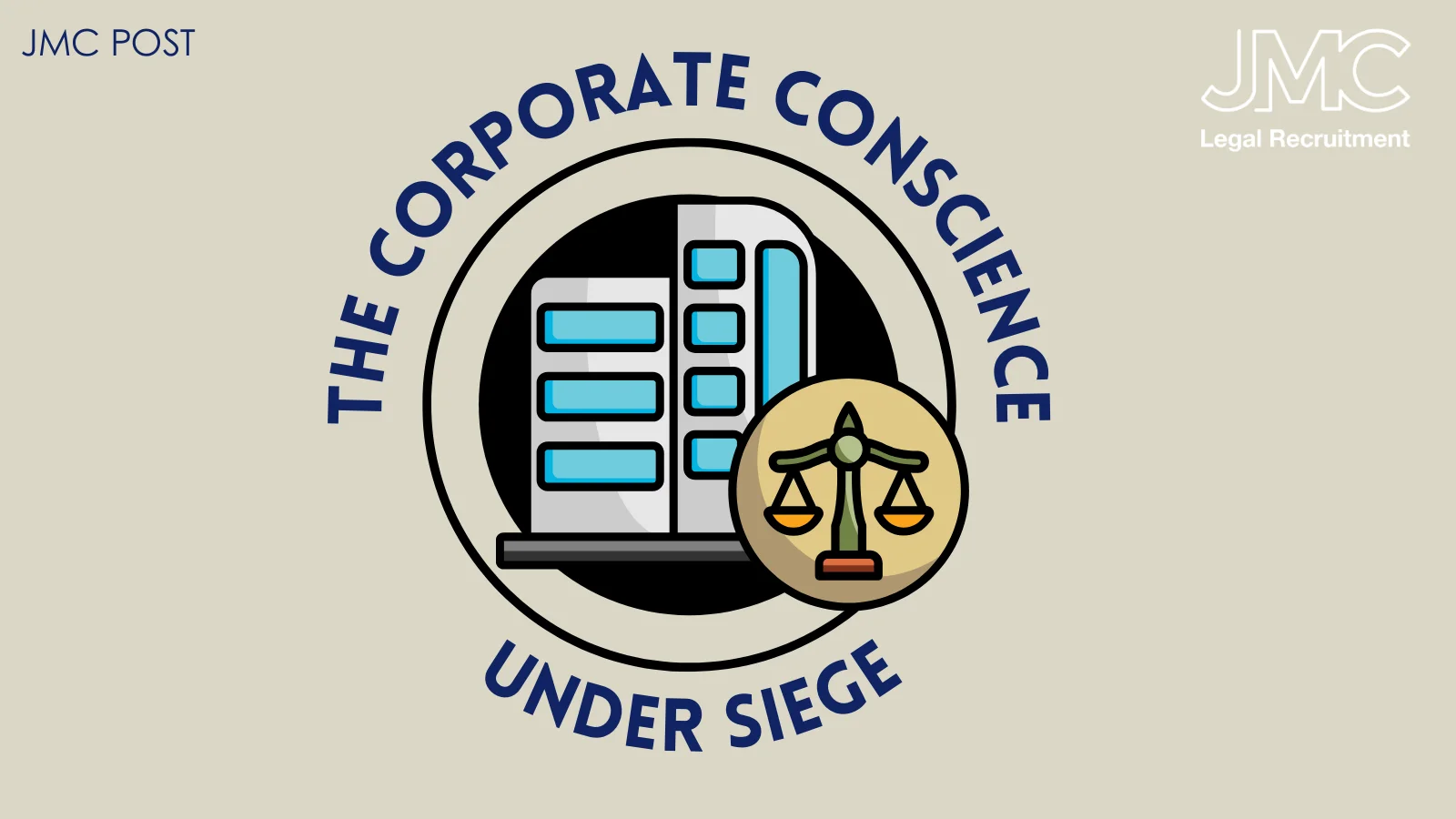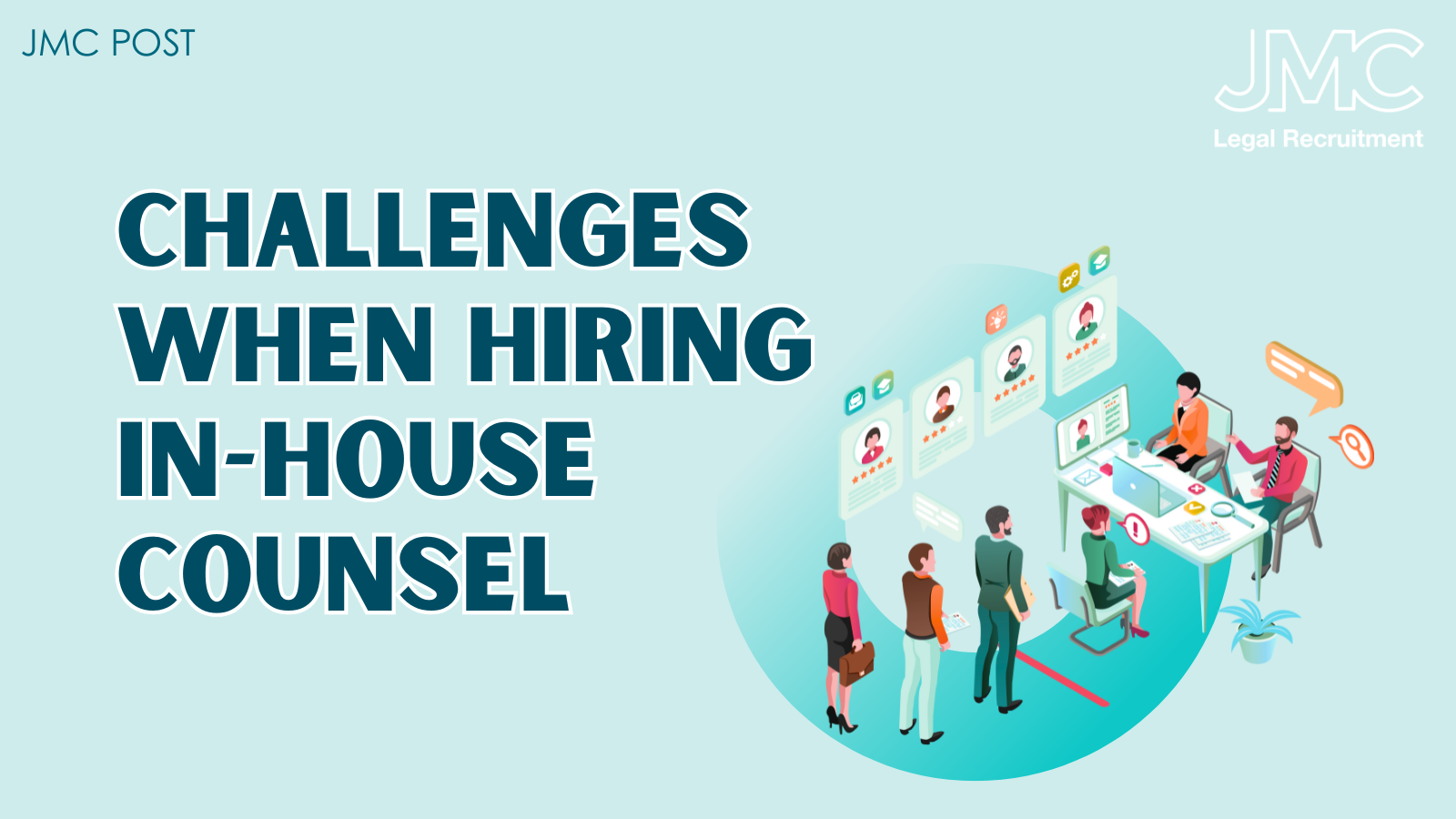
Challenges When Hiring In-House Legal Counsel
30 May, 20255 minutes
Having helped companies across various industries secure in-house legal talent, I’ve seen first hand just how many curveballs the process can throw. Some challenges are like stepping over a puddle, annoying but manageable.
Recently, I decided to dig a little deeper by running a LinkedIn poll targeted at General Counsels, Legal Directors, and Heads of Legal within my network. I wanted to know: what’s really tripping people up when it comes to securing top-tier in-house legal talent?
- Salary Expectations: 34%
- Cultural Fit: 24%
- Skills Mismatch: 21%
- Pushback from Finance Teams: 21%
Salary Expectations
It’s no secret that legal salaries have gone up and then up some more, fuelled by heavier workloads, a candidate-driven market, and the irresistible charm of flexible working. According to Axiom, 81% of legal professionals rank competitive pay as a top priority when job hunting. No surprises there.
Many private practice lawyers still end up taking a significant pay cut to go in-house. For example, a 7PQE commercial lawyer at a US firm in London could be pulling in £250k (basic), whereas the same level in-house role typically sits at around £100-130k.
Cultural Fit
Let’s face it: no one wants to hire a technically brilliant lawyer who causes HR to break into a cold sweat. These days, legal teams need professionals who not only tick the boxes on paper but also fit into the culture of the company.
Cultural fit is especially crucial in roles that are highly collaborative and carry strategic weight.
Skills Mismatch
As legal teams become more tech-savvy and digitally driven, the classic skill set isn’t always enough. A working knowledge of data privacy, cybersecurity, and how AI is shaking up the legal landscape – becoming more often than not, a non-negotiable.
If a candidate can draft a bulletproof contract and explain how automation can streamline NDAs, they’re gold dust.
Pushback from Finance Teams
The classic standoff: Legal says, “We need another hire,” and Finance replies, “Have you tried not needing one?” It’s a delicate dance but one that’s easier when legal leaders clearly outline the risks (and potential costs) of not investing in the right talent. Regulatory fines, external legal fees, and reputational damage are all things that have to be considered.
It also helps to remind Finance that every penny not spent on a well-rounded in-house team may be multiplied tenfold once the external counsel bill comes through.
Strategic Approaches to Overcome Hiring Challenges
- Flexible Work Models: Hybrid or remote setups can sweeten the deal for candidates and help ease budget strain without losing appeal.
- Continuous Learning Opportunities: Upskilling not only retains talent but also keeps your team sharp in the ever-evolving legal landscape.
- Enhanced Collaboration: A little less tug-of-war between HR, Finance, and Legal, and a little more collaboration, the smoother the internal process, the faster you’ll hire the right person.
- Emphasising Cultural Integration: Don’t just assess legal prowess! Consider how they’ll mesh with the team. A good culture fit is worth its weight in onboarding time saved.
Hiring in-house legal talent might feel like trying to complete a Rubik’s cube blindfolded — while Finance shouts that the puzzle is too expensive. But with the right strategies and a healthy dose of realism, the process doesn’t have to be painful.
Related Articles:
[A Guide for Start-Ups Looking to Make Their First In-House Counsel Hire]
[The In-House vs. Law Firm Dichotomy: Culture, Mental Health, and the Path to Improvement]
[Renewable Energy Vs Traditional Energy: Challenges for In-House Legal Counsel]


